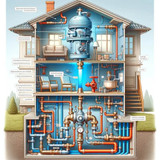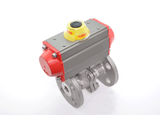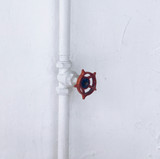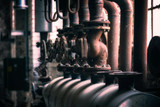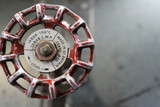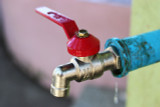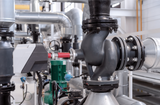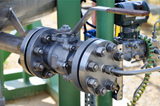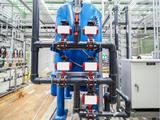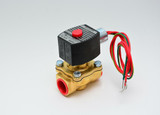Polypropylene Valves
There are no products listed under this category.
Polypropylene valves are useful additions to many different systems. They have many excellent uses and have advantages when used in many different industries. Let’s take a closer look at these fittings and how they can fit into your current or next project.
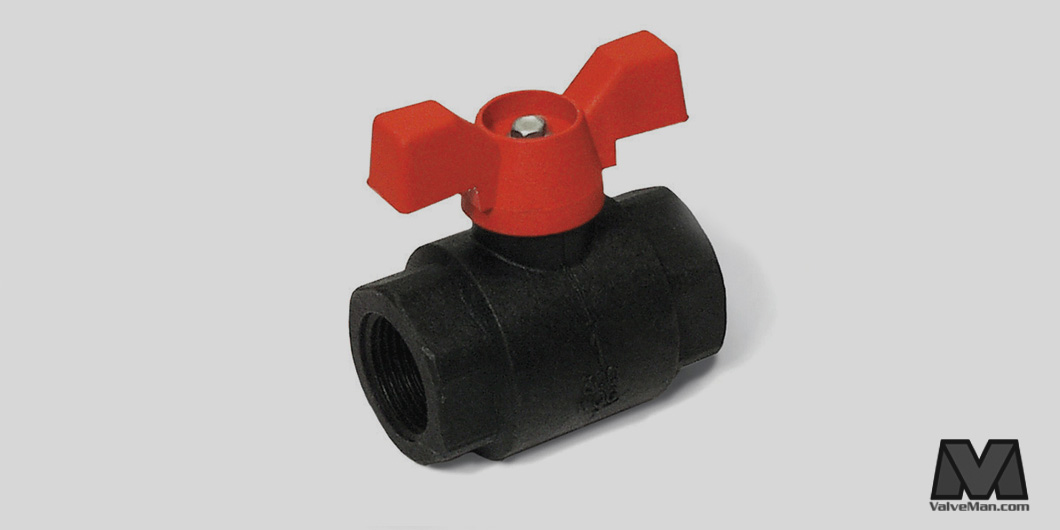
What is a Polypropylene Valve?
A polypropylene valve is any kind of valve that consists of polypropylene. Polypropylene is a type of thermoplastic polymer that has many beneficial properties. Polypropylene valves are not a specific type (i.e., ball valves or butterfly valves) of valve, but any valve made from this one specific material.
What Are the Common Applications of Polypropylene Valves?
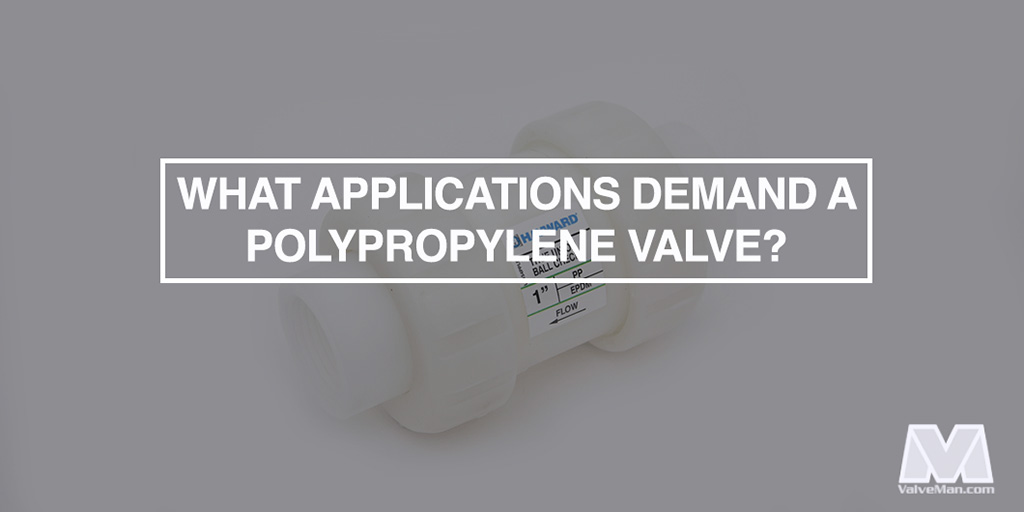
Because the polypropylene valve is so versatile, it has many different applications. Some of the industries and uses where you may encounter these valves include the following:
- Chemical processing - Chemical processing plants often make use of polypropylene valves due to their chemical resistance and ease of use.
- Waste and wastewater treatment - Treatment plants for waste and wastewater may use polypropylene valves to help release chemicals at appropriate times and stages in the process.
- Industrial manufacturing - Industrial manufacturing plants may use this kind of valve for various different reasons. This is mainly because many different chemicals and fluids play a part in this type of manufacturing process.
- Food and beverage processing - Food and beverage processing plants use polypropylene valves due to their hygienic nature. They’re easy to clean, making them great for use with everything from liquids to slurries and pastes.
- Petrochemical industry - The petrochemical industry relies on the cleanliness and chemical resistance of polypropylene valves in the creation of petroleum products. They may also use stainless steel.
- Agriculture - In the agricultural industry, polypropylene valves play a pivotal role in many types of irrigation systems. Their resistance to UV and high temperatures makes them ideal for outdoor use.
- Pharmaceutical industry - Because polypropylene valves are chemical-resistant and easy to sanitize, they’re a perfect fit for the pharmaceutical industry.
What Are the Advantages of Using Polypropylene Valves?
Polypropylene valves come with a range of advantages. Let’s take a closer look at why you may want to consider these fittings for your next project. Some of the advantages include the following:
- They’re lightweight, resulting in affordability, as well as ease of use and installation.
- They’re incredibly cost-effective since they’re affordable and have reasonably low prices.
- They have resistance to moderately high temperatures, meaning they’re ideal for a range of different industrial processes.
- They offer electrical insulation, which makes them an important product in cases where electrical conductivity needs to be avoided.
- They’re resistant to impact, which means they do well in applications where regular bumps and impacts may be experienced (i.e., agricultural irrigation).
- They’re resistant to UV, making them ideal for use in outdoor applications, especially those where the valve may spend considerable time in direct sunlight.
Frequently Asked Questions (FAQs)
How Do I Select the Right Polypropylene Valve for My Application?
Whether you need to buy polypropylene valves or butterfly valves for your application, you need to know what you’re looking for before you make the purchase.
To help you do this, there are a range of things you can consider or questions you can ask yourself. Some of these include the following:
- What will you be transporting using the system that the valve is for?
- How big are the piping and fittings on the rest of the application?
- Does the valve need to match the other piping, or is there some slight variation where you’re planning on using it?
- Does your application have any specific or unique temperature requirements?
- What is the flow rate and pressure rating required by your application?
- Do you need to be able to control the valve remotely, or is a manual valve okay?
How Should Polypropylene Valves Be Maintained?
Polypropylene valves don’t generally have high maintenance requirements. However, there are a few basic valve maintenance steps you can take to help ensure your valve’s efficiency and longevity:
- Inspect the valve regularly for leakage, cracking, or other signs of wear and malfunction.
- Keep the valve and its surroundings clean.
- Some valves may require regular lubrication to keep them functioning as they should.
- Check the inside of the valve regularly to ensure that there hasn’t been a buildup of debris.
- Test the valve regularly to ensure that its seal maintains its integrity and that the valve is still in full working order.
Where Can I Buy Polypropylene Valves?
You can get your polypropylene valves right here at ValveMan. We have a wide range of valves available in different sizes and materials. From PVC to stainless steel, butterfly valves to check valves, manual valves to those with electric actuators, we have it all.
Everything You Need at ValveMan
If you need help selecting the kind of valve that will work best for your application, please contact us. We will be happy to help you choose the best valve for your upcoming project.
Our Posts
View AllUnderstanding Valve Sizes and Measurement
Sizing the appropriate valve is critical to ensuring the performance of your system. Whether you'r …
Read MoreTypes of Water Valves
Hey there, fellow valve enthusiasts! We all know that valves play a crucial role in regulating th …
Read MoreWhat is a Backflow Preventer, and How Does it Work?
When a simple check valve is inadequate for the job, you need a backflow preventer. But knowing …
Read MoreValve inspection - main points of valve testing in Manufacture setting
Industrial facilities rely on different types of valves (such as check valves, for example) to con …
Read MoreTypes of Ball Valves
Ball valves are important components in a vast range of systems, from small family-owned workshops …
Read MoreUnderstanding valve standards and specifications
Hey there, fellow valve enthusiasts! Today, we're looking at valve codes, standards and specifica …
Read MoreHow to Tell if a Valve is On or Off
We have all been there before. You are staring at a valve; you know that you should know if it …
Read MoreUnderstanding Different Types of Valve Connections and Fittings
Hey there, fellow valve enthusiasts! We know valves play a crucial role in regulating the flow of li …
Read MoreTypes of Valve Handles: Lever and Handwheels
Whether you're involved in industrial work, plumbing, or you're a DIY enthusiast, you come across va …
Read MoreThe Basic Parts of a Valve
Valves quietly work in many different areas, even places you wouldn't expect. They're truly every …
Read MoreGas Ball Valves In Industrial Applications - 5 Things to Keep in Mind
Unlike the standard ball valves, most gas ball valves are tested and approved by CSA. These valves a …
Read MoreHow To Correctly Use A 3 Way Valve In Different Applications
To understand the "T"-port and an "L"-port 3-way valves and what makes them different, it's importan …
Read MoreIndustrial Ball Valves - 9 Questions To Make The Right Choice
Ball valves are versatile flow control devices suitable for extensive industrial applications. They …
Read MoreEverything you need to know about valve types
Valves play crucial roles in production lines and equipment performance across a multitude of ind …
Read MoreWhat is a Duty Cycle and How Does it Relate to Electric Ball Valves?
Electric actuation improves the efficiency of processes by maintaining the accuracy of the re …
Read MoreActuated Butterfly Valves 101: All You Need To Know About Their Application In Piping Systems
Butterfly valves are quarter-turn flow control or isolation devices, used for quick shut-off in p …
Read MorePractical Guide To Electric and Pneumatic Actuators – Which One To Choose?
While electrical and pneumatic actuators have several unique benefits and are preferred in differ …
Read MoreHow Do Check Valves Affect Water Pressure in the Piping System?
Check valves also known as "one-way" valves are autonomously operated unidirectional valves that all …
Read MoreUsing an Actuated Ball Valve Or a Solenoid Valve For Best Fluid Control In The System
Both ball valves and solenoid valves serve a wide variety of applications. From a&nb …
Read MoreWhat are the types of solenoid valves?
Favored for offering low power consumption, a compact space envelope, superior speed of ope …
Read More

